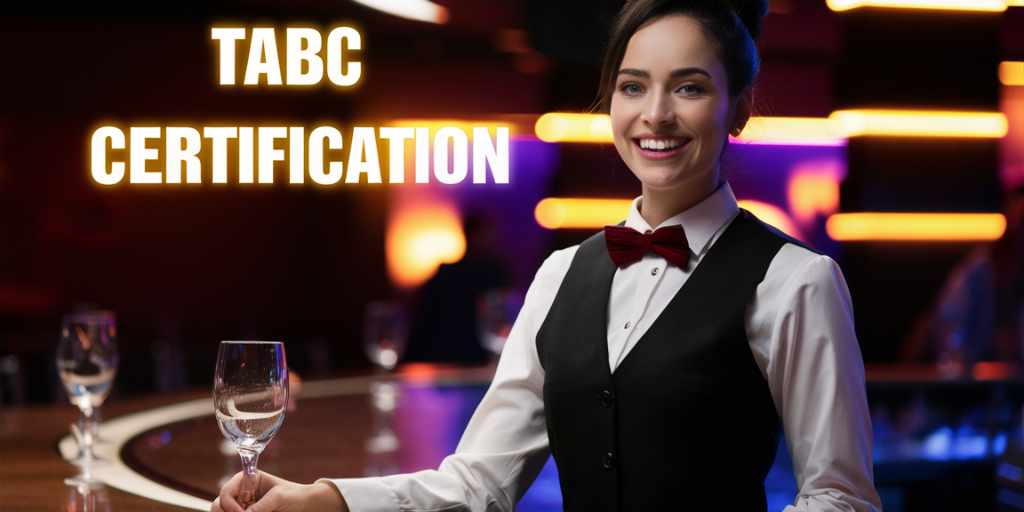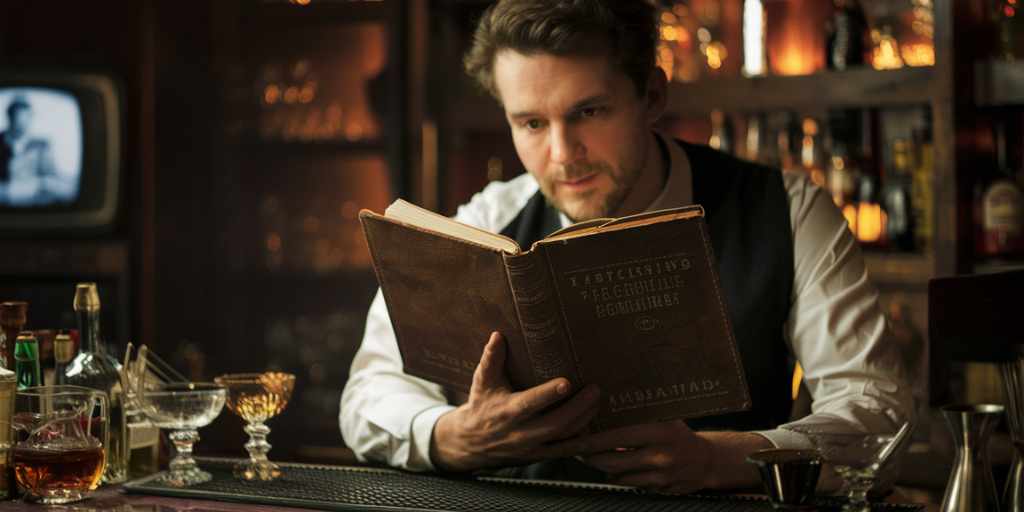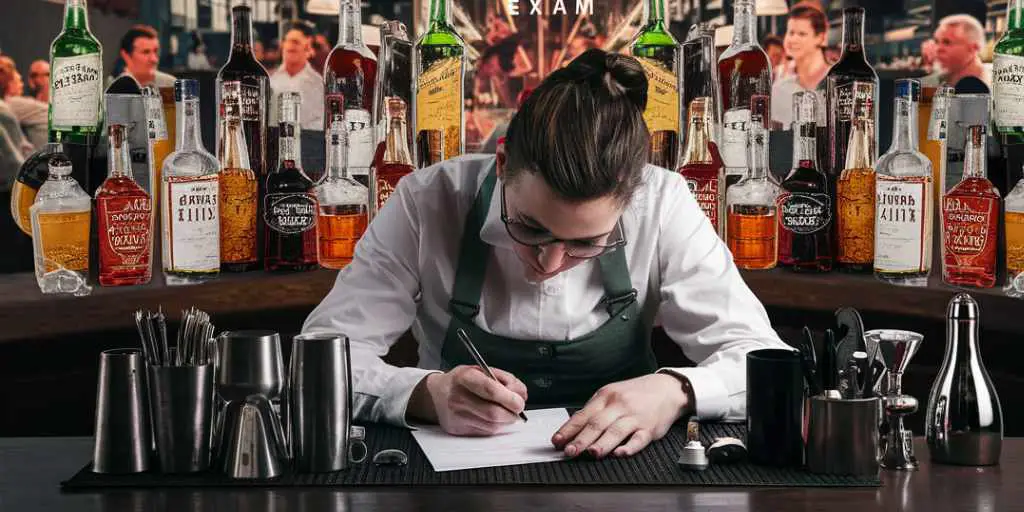Bartending schools offer structured training programs for aspiring bartenders, equipping them with the knowledge and skills necessary to thrive in the hospitality industry. These institutions provide a comprehensive curriculum that covers a wide range of topics, from mixology to customer service, and often includes food safety and alcohol certification.
Attending a bartending school can be a crucial step for those looking to turn their interest in mixology into a professional career.
Key Takeaways
- Bartender schools provide essential skills and knowledge for the hospitality industry.
- Practical training simulates real-world bartending situations.
- Course selection should be based on individual career goals and school credentials.
The practical experience gained from bartender schools proves invaluable as students learn in a hands-on environment, simulating real-world scenarios behind the bar. This enables them to gain confidence and proficiency in crafting cocktails, managing bar operations, and handling patrons.
With a variety of programs available, from online courses to in-person classes, prospective students must consider factors such as reputation, course content, and job placement assistance to find the bartending school that best suits their career aspirations and needs.
Understanding Bartender Schools
Bartender schools offer structured education and training for individuals interested in pursuing a career in hospitality. They provide theoretical knowledge and practical skills necessary to mix drinks for customers and manage bar operations.
Courses Offered
- Fundamentals of mixology
- Customer service standards
- Alcohol safety and responsibility
Certifications Successful completion often results in a bartending certificate, enhancing employment prospects.
Top Schools
United States:
International:
Career Impact Graduates from the best bartending school programs can expect increased job opportunities and potentially faster career advancement.
Bartender training varies in duration and intensity, with some programs offering accelerated options for those who wish to fast-track their entry into the field. Students learn about cocktail recipes, pouring techniques, and the art of beverage presentation alongside important legal and safety regulations, including responsible alcohol service.
Furthermore, attending a bartending school can enhance one’s personal development and interpersonal skills, which are pivotal in an industry where customer interaction is key.
| Pros of Bartending Schools | Cons of Bartending Schools |
|---|---|
| Structured Learning | Cost |
| Networking Opportunities | Not always a requirement |
| Up-to-date Industry Trends | Varies by reputation |
In conclusion, considerations include training quality, cost, and the institution’s credibility. Before enrolling, aspiring bartenders should assess whether the benefits align with their career goals.
Curriculum and Training Programs
The curriculum of bartending schools is designed to encompass all the necessary knowledge and skills needed to excel in the hospitality industry. Detailed courses on cocktail preparation, understanding of various types of alcohol, and restaurant and bar management techniques are standard.
Bartending Courses
Bartending courses provide a fundamental education on serving and managing alcoholic beverages. It typically begins with an introduction to the bar tools used in a professional setting, such as shakers, jiggers, and strainers. Students then progress to learn the proper techniques for pouring, measuring, and mixing a wide variety of drinks, from classic cocktails to modern creations.
Essential Skills:
- Cocktail recipes
- Wine and beer service
- Customer interaction
Mixology Training
Mixology training delves deeper into the craft of cocktail making. This often involves studying the history and characteristics of different spirits and how to blend them for optimal taste. An aspiring mixologist learns about flavour profiles and presentation and garnishing techniques, which are essential for creating visually appealing drinks.
Advanced Techniques:
- Infusions and syrups
- Cocktail menu development
- Tasting and flavour pairing
Bar Management Essentials
The role of a bar manager encompasses more than just serving drinks; it also involves overseeing the entire operation of the bar. Training in this area covers subjects such as inventory management, cost control, staff training, and the application of local alcohol laws and regulations. Aspiring bar managers gain the organizational and leadership skills essential for running a successful establishment.
Management Skills:
- Inventory and cost control
- Staffing and training
- Compliance with laws
Career Opportunities after Graduation
Graduates of bartending schools often have access to a robust range of career openings within the hospitality sector. Equipped with certified skills, they stand a good chance of venturing into jobs across restaurants, bars, and hotels, leveraging their mixology expertise, customer service, and interpersonal skills.
Job Placement Assistance
Many bartending schools offer job placement assistance to their students, helping them navigate the competitive marketplace. This assistance typically includes creating a professional resume, interview coaching, and connecting graduates with a network of hospitality venues needing skilled bartenders. Schools such as Local Bartending School provide these services to bridge the gap between education and employment, streamlining the student’s transition into the workforce.
Bartending Jobs Market
The bartending jobs market is dynamic, with opportunities ranging from entry-level to experienced positions. Graduates can expect to find job openings in various settings, including upscale restaurants, vibrant bars, and luxury hotels, all of which require a keen understanding of customer service, drink preparation, and oftentimes, an ability to work under pressure. For those looking to enter the field, thorough research into institutions offering practical experience and networking opportunities, such as those mentioned in Bartender Careers: What To Expect, can be particularly advantageous.
Practical Experience and Real-World Application
Practical experience is crucial for those looking to thrive as bartenders. It bridges the gap between theory and practice, ensuring that students learn the essentials of making great drinks and understand the workings of a real bar.
Training at a Real Bar
In any bartending course training, immersion in a real bar environment is a foundational aspect of learning. Students gain firsthand experience by engaging in the fast-paced atmosphere, which is imperative for mastering customer service and drink-making efficiency. Courses emphasising training in a real-world environment underscore the importance of understanding bar dynamics, which can only be fully appreciated in an actual bar setting.
Hands-on Equipment Use
Proficiency with bar equipment is a hallmark of a competent and experienced bartender too. A comprehensive training program includes hands-on experience with all the necessary tools of the trade. This includes, but is not limited to, shakers, strainers, muddlers, and pourers. The tangible experience of using these tools in practice sessions helps students learn the intricacies of making great drinks and prepares them for real-life scenarios where efficiency and expertise are key.
Choosing the Right Bartending School
When selecting a bartending school, it is pivotal to consider the school’s location, accessibility, and credentials. The ideal bartender school should also merge reputable training with logistical convenience to enhance the learning experience.
Locations and Accessibility
Bartending schools are scattered across various cities and localities, with notable options situated in bustling metropolitan hubs such as New York City (NYC). Prospective students should assess the school locations for proximity to their residence or ease of commute. In particular, establishments like the Spirit Lab in London have set a benchmark for accessibility. Moreover, cities renowned for vibrant nightlife, such as NYC, offer a practical environment for in-context training.
For individual cities, we have guides for:
- New York
- Los Angeles
- London (UK)
- Miami
- Atlanta
- Boston
- Dallas
- Las Vegas
- San Diego
- Chicago
- New Jersey
- Toronto (Canada)
- Vancouver (Canada)
- Montreal (Canada)
- Calgary (Canada)
City School Examples Accessibility Features London Spirit Lab Central location, near transit New York Numerous bartending schools Extensive public transport San Diego Professional Bartending School of San Diego State-approved with flexible hours.
Reputation and School Credentials
The credibility of a bartending school is often reflected in its reputation and credentials. Accreditation from recognized institutions, such as the American Bartenders School or local ABC licensing authorities, is indicative of quality. Aspiring bartenders should target schools with a certified curriculum aligned with industry standards.
- Reputation: Look for endorsements from established bartenders, industry professionals, and positive alumni feedback.
- Credentials: Confirm schools are state-approved, with relevant affiliations to hospitality networks or universities offering hospitality programs.
In cities like NYC, renowned for their bar scene, one can expect the schools to be competitive, thus fostering a fun and rigorous training ethos.
Frequently Asked Questions

The “Frequently Asked Questions” section provides essential details for aspiring bartenders and mixologists, addressing educational paths, program duration, costs, and certification requirements.
How do I start learning mixology?
To begin learning mixology, one can enrol in a class at a bartender school or seek online resources and courses designed to teach cocktail-making fundamentals.
What are the top-rated bartending schools available?
Top-rated bartending schools offer comprehensive training programs and are recognized for their quality education, such as the ones listed here.
What are the costs associated with attending bartending school in major cities?
Costs for attending bartending school vary, with urban centres like New York or Los Angeles typically charging more due to higher overhead expenses, as detailed on various school websites.
How long does it typically take to complete a bartending program?
Bartending programs can range from a few weeks to several months, depending on the school, schedule and course intensity.
What are the differences between online and in-person bartending courses?
Online bartending courses offer flexibility and convenience, while in-person courses provide hands-on classroom experience and direct mentorship, as discussed by experts in the field.
What should one look for when choosing a bartending school?
When choosing a bartending school, one should consider the school’s reputation, curriculum, instructor experience, and post-graduate support.
What certifications are required to work as a bartender in various states?
Certification requirements vary by state, including responsible service of alcohol training and possible licensure, which are crucial for legal and professional bartending practices.
Is mixology a science or an art?
Mixology is a blend of science, emphasising precise measurements and understanding of ingredients, and art, focusing on creativity and presentation in crafting cocktails.
Is mixology a major?
Mixology is not typically a major in traditional higher education institutions, but specialized courses and certifications in mixology are available through dedicated trade schools.
What is the best degree for a bartender?
While no specific degree is required for bartending, degrees in hospitality, business, or a related field can provide beneficial skills and knowledge for a career in the industry.






